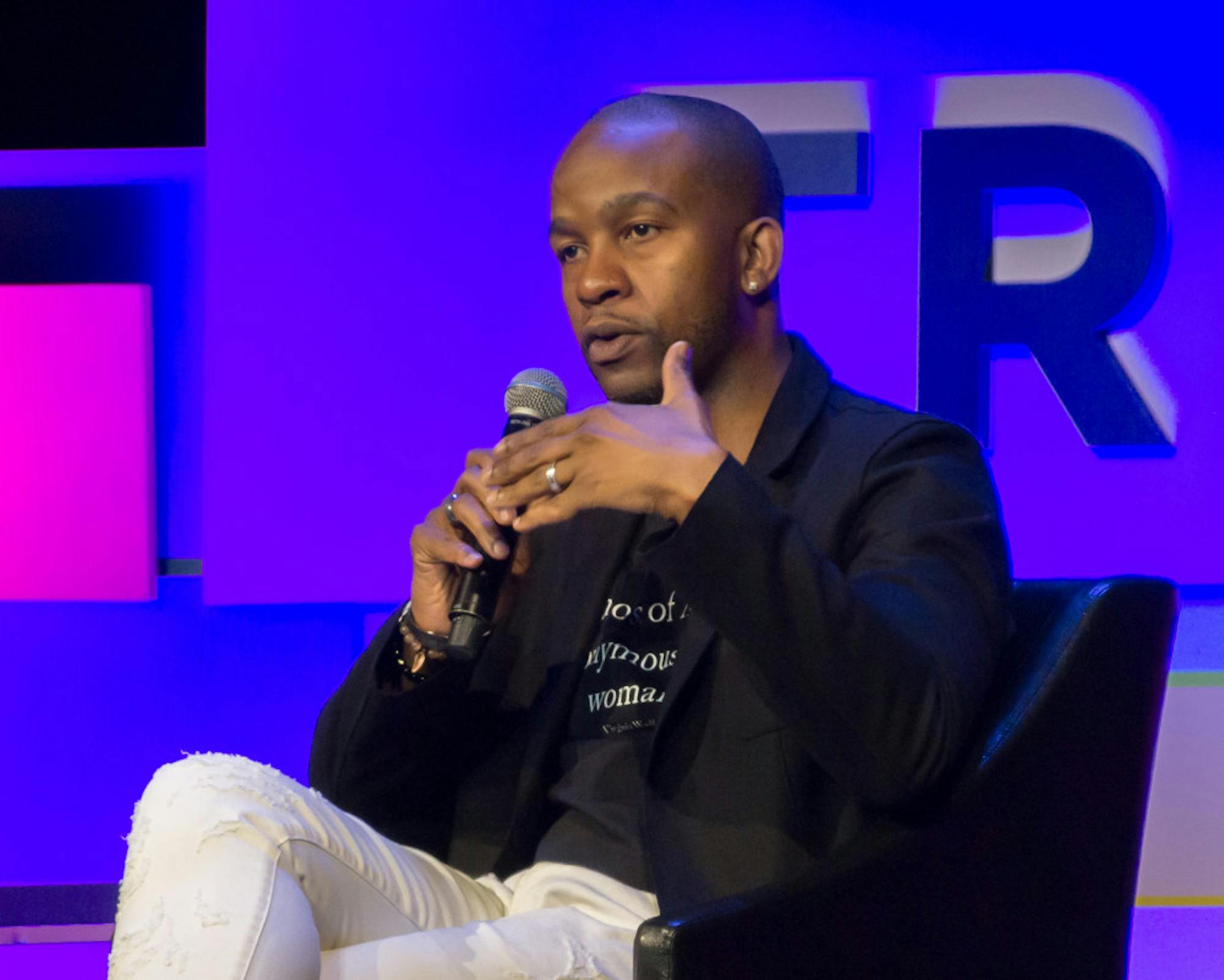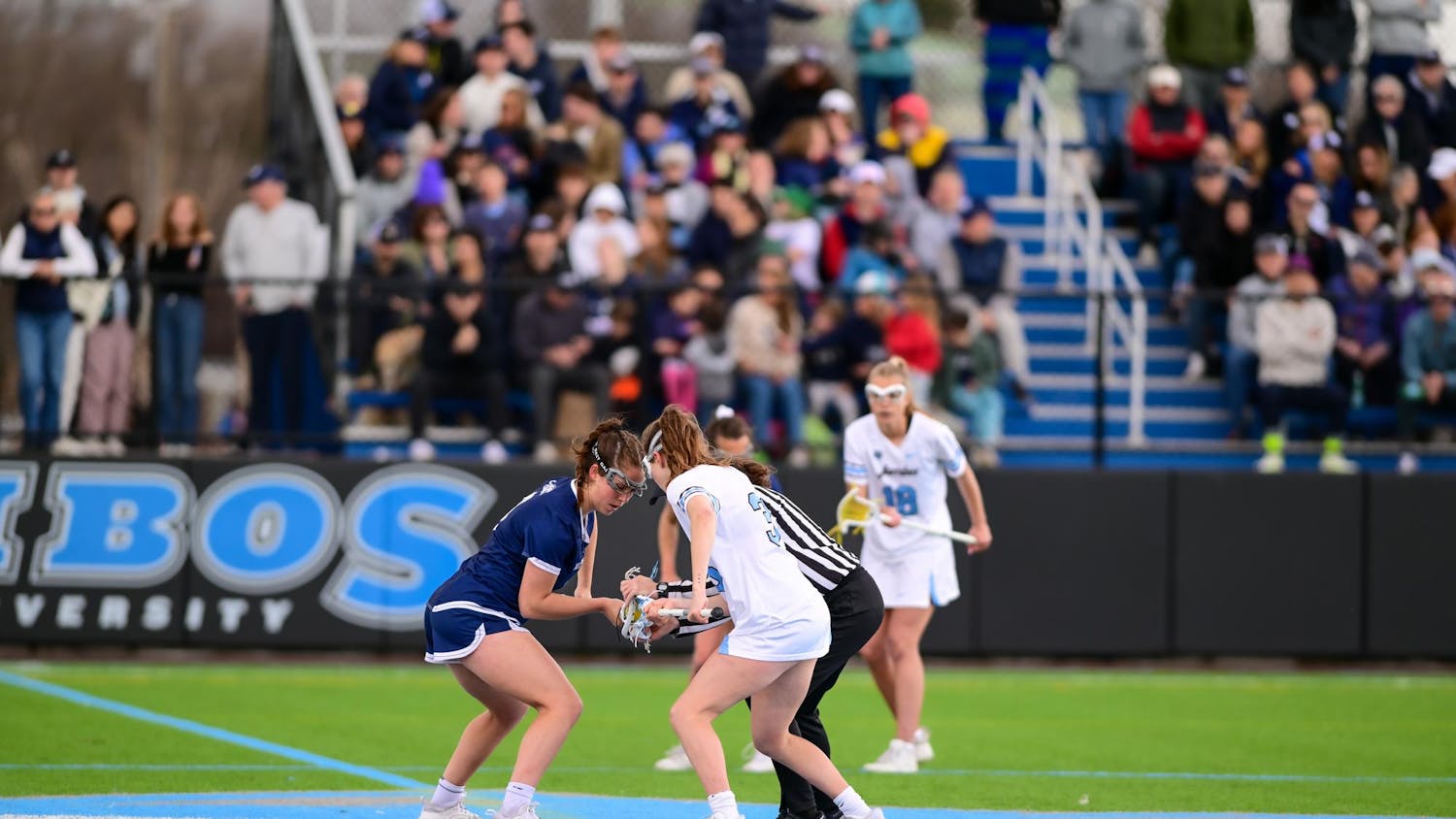Tufts Office of the Provost hosted a discussion titled "Intentional Diversity and Inclusion," with Wade Davis, former NFL player and public speaker on gender, orientation and racial equality, yesterday in the ASEAN Auditorium. The program was co-sponsored by the dean of Arts and Sciences, the Bridging Differences Initiative, the Arts, Sciences and Engineering Diversity Fund and the Athletics Department.
This is not the first time Davis has spoken at Tufts. He delivered a talk about his experience as an openly gay athlete in 2013.
In an interview with the Daily prior to the event, Associate Provost and Chief Diversity Officer Rob Mack said that Davis has spoken at Tufts before and that his impact in the community was great.
“It would be really helpful that someone with the right message could come back and continue the conversation going," Mack said. "I am excited that he will be a part of Tufts again this year.”
Through Davis’ presentation, Mack said he hopes students have an opportunity to think about diversity and inclusion in a new way and to think about how to celebrate differences and prioritize inclusion in their lives.
Mack opened the event by detailing Davis’s successful career as a public speaker and his prominent role in the #MeToo movement and Time’s Up campaign. Davis is a consultant for professional sports leagues in areas related to racism, sexism and homophobia. He leads inclusion-training sessions for coaches and emphasizes the importance of engaging men around gender equality and equity.
“He is coming to us with an amazing background and perspective," Mack said.
Davis began his speech with a discussion about intersectionality and the significance of the term. He described intersectionality as an account of systems of power and rules of society, whether through actual or informal laws.
“What's interesting about the term of intersectionality is that we actually use it, but we don't know who created it and its impact," he said. "When you don't know that a black woman created this term because another black woman was sitting at the intersection of sexism and homophobia, we become complicit in the erasure of the intellectual labor of black women.”
Davis also highlighted the current state of the political climate in the U.S. and the marginalization of black women.
“We live in a country also where black women are the most dismissed, the most forgotten, the most disrespected and the most marginalized group in this country ... we must take action to uplift them.”
He recalled moments in history where black women have not been treated equally and with respect, referencing Ida B. Wells and, in 2015, Sandra Bland, to raise the point that black women have been consistently marginalized.
“We don’t know the history of not just women, we don't know the history of black women,” Davis continued. “We live in a day and age where the erasure of women’s labor is common ... We don't learn the names of women who have helped to create this world.”
Throughout his speech, Davis also spoke about closing down the distance between ourselves and others.
“There is a gap between you and that person who is different from you and that gap the only way it can be closed is by love," he said.
After he ended his discussion, he opened the floor to questions from members of the audience. Jared Smith, a student success advisor and the assistant director of the Bridge to Liberal Arts Success at Tufts program, asked about Michael Sam, the first openly gay football player to be drafted into the NFL.
Regarding Sam’s career and decision to be open about his sexuality, Davis emphasized Sam's desire to control the narrative that reporters and the NFL would create about him.
“When Michael Sam invited the world in he was forced to because reporters found out that he was gay, so they were going to write a story about him ... He tried to control the narrative and his own story," Davis said. “When you go into the NFL and you don't have people who care for you, you learn very quickly that the NFL is a business.”
Davis ended the discussion with a quote by Alice Walker: “I think it pisses God off if you walk by the color purple in a field somewhere and don’t notice it.” He encouraged all to live in the present and take risks.
Davis stressed the importance of students getting out of their comfort zone.
“The more that you risk, the more that you learn that the world isn't as dangerous as you thought it was, that people aren't as different as you thought you were, that we’re actually really alike," he told the Daily.
Former NFL player Wade Davis speaks about diversity, inclusion

Wade Davis is pictured.





